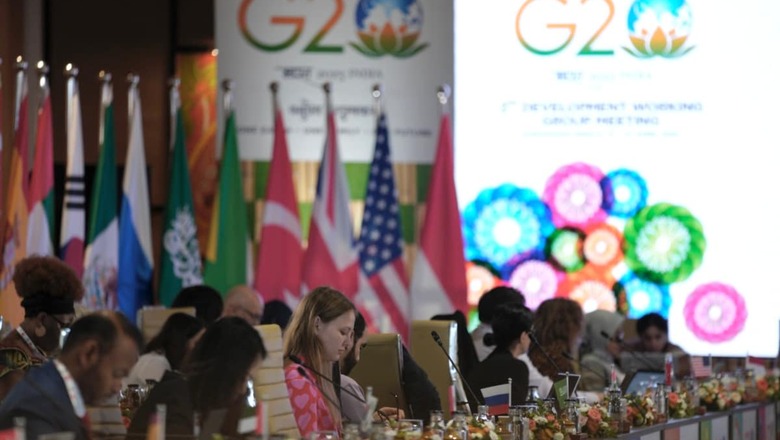
views
Finance Minister Nirmala Sitharaman recently emphasised that G20 should address the rising debt distress among developing nations. India, during its G20 presidency, has been proactively tackling the debt issue. Since the year 2000, global public debt has surged five times. Developing nations bear nearly 30 per cent of this burden. Escalating global debt vulnerabilities have taken centre stage with Sri Lanka and Pakistan suffering. India has repeatedly called for collaborative efforts to alleviate the issue.
Debt & Diplomacy: A Study In Contrast
As an emerging voice of the Global South, India’s policy has been starkly in contrast to China’s approach to putting poor countries in debt traps. Recently, Prime Minister Narendra Modi referred to forces who have “taken advantage of debt crises in other nations, exploiting their vulnerabilities and pushing them into debt traps”. This was a clear hint at China.
China is notorious for providing large loans to poor nations, and then using it as leverage. The Belt and Road Initiative (BRI), under which China has lent huge sums, has been more beneficial to Beijing than to countries that have provided access to build infrastructure. China’s lending terms often lack transparency and involve high-interest rates.
India, on the other hand, has focused on concessional loans and grants. It has focused more on ensuring regional stability and development. In most cases, it extended loans to South Asian and African countries with the aim of helping them with capacity building, education, healthcare, and social development. Multiple lines of credit have been extended to South Asian neighbours like Nepal, Bhutan, Maldives and Bangladesh for development projects. Over the past decade, 42 African nations have received approximately $32 billion in credit from India.
At times of distress, China has often been intransigent. It refused Sri Lanka’s request to reschedule project loans amounting to nearly $10 billion. It also said no when ‘all-weather ally’ Pakistan sought to renegotiate power purchase agreements. When it has rarely okayed debt relief, there has been some geopolitical motive. Recently, Ethiopia’s loan repayment was suspended by China, after the latter joined BRICS.
This is in stark contrast to India which has stepped in to help selflessly in times of distress. In 2020, India provided a $400 million currency swap facility to boost Sri Lanka’s draining foreign exchange reserves.
Debt And India’s G20 Presidency
In 2022, just before India took over the G20 stewardship, UN chief Antonio Guterres sought India’s support in mobilising G20 nations to help developing countries saddled with debt. India has stepped up to that challenge in an exemplary manner. Prime Minister Modi has long been emphasising the need for equitable development, spending prudence and financial stability in the Global South. Acknowledging the urgency of this issue, G20 nations have engaged in extensive deliberations to strengthen multilateral coordination and facilitate coordinated debt treatment for debt-distressed countries.
A significant boost has been given to debt restructuring through the Common Framework. It envisages working with the Paris Club to support low-income countries with unsustainable debt in a systematic manner.
Earlier, Chad was the only country to undergo debt restructuring. But on India’s urging, Zambia, Ethiopia and Ghana have also made notable advancements. G20 forums have facilitated debt restructuring coordination for countries like Sri Lanka, for which a committee co-chaired by India, Japan and France helped.
India’s Role In Debt Alleviation
The biggest assistance India can give to the Global South is not direct lines of credit. It is the ability to influence big lenders, including those from the Paris Club, to be more lenient. India has stressed the importance of reforms in multilateral development banks highlighting the need for a collective approach to debt distress. To accelerate debt restructuring efforts, a Global Sovereign Debt Roundtable was launched in February in association with the IMF and World Bank.
India has also worked with the BRICS nations to launch the New Development Bank thus demonstrating the need for Global South to work together to improve access to funding. India’s emphasis on a collaborative approach creates novel ways to use capital effectively, alleviate poverty and address developmental needs.
China and India present a set of contrasts in the way that debt crises are handled – multilateral versus unilateral, and financial profit versus welfare. The change being pushed by India is a win not just for Global South but, to echo the Prime Minister’s words, “a ray of hope for the world”.
Views expressed in the above piece are personal and solely that of the author. They do not necessarily reflect News18’s views.


















Comments
0 comment